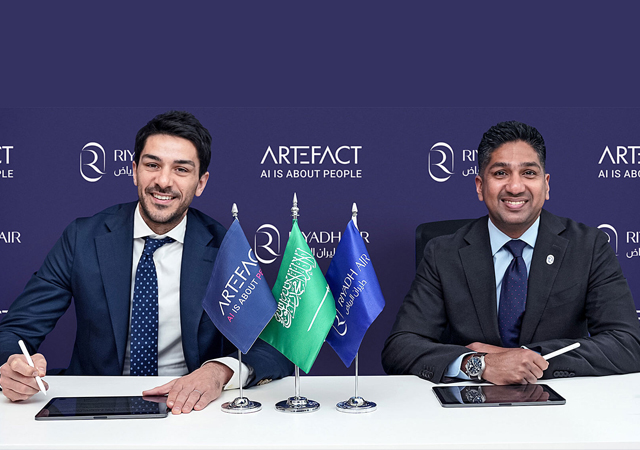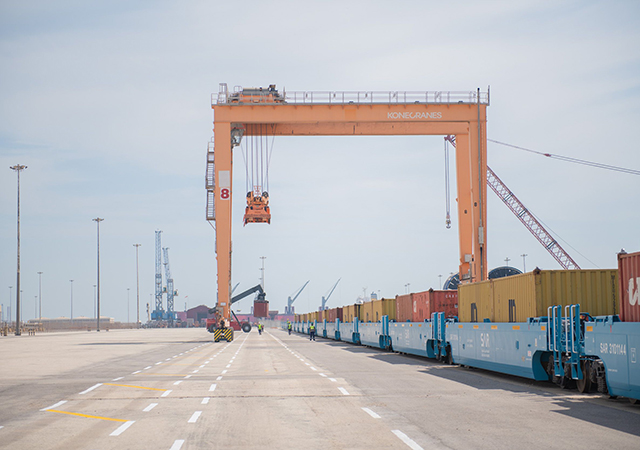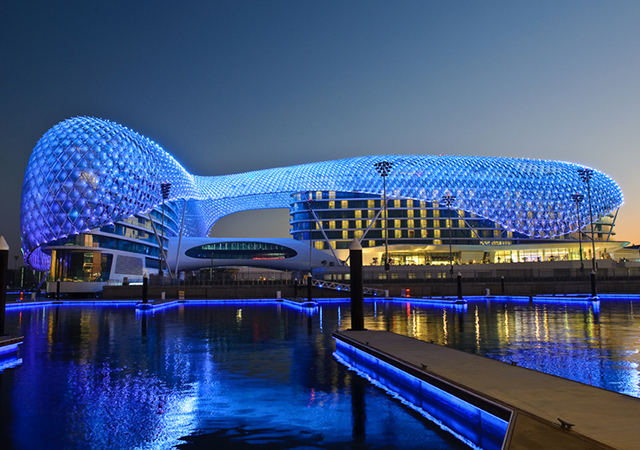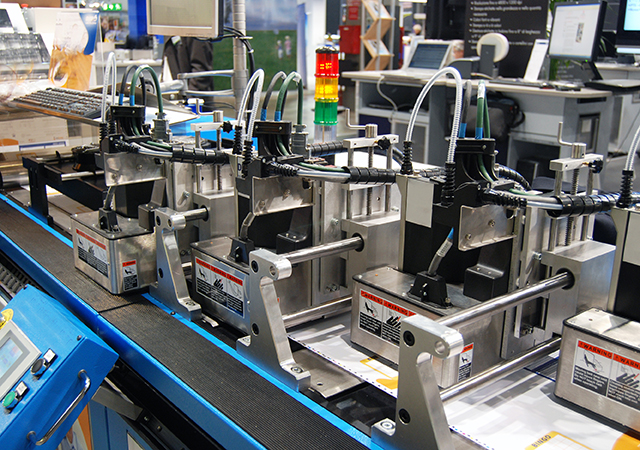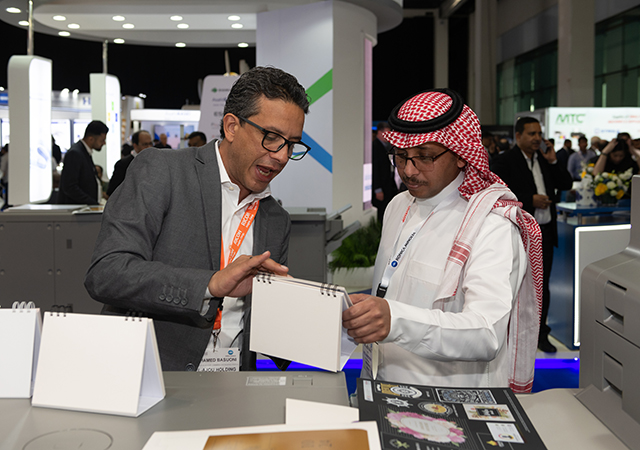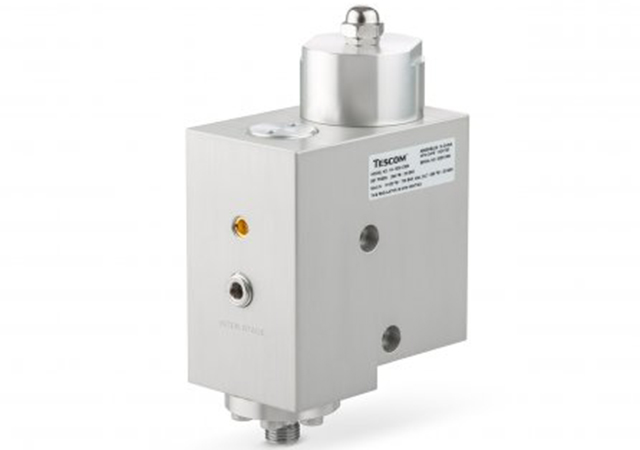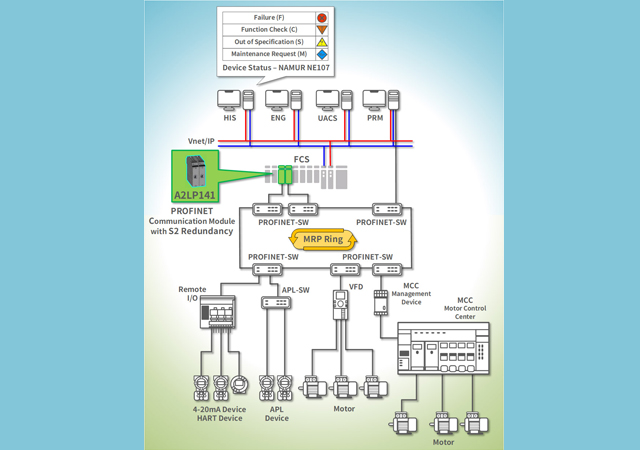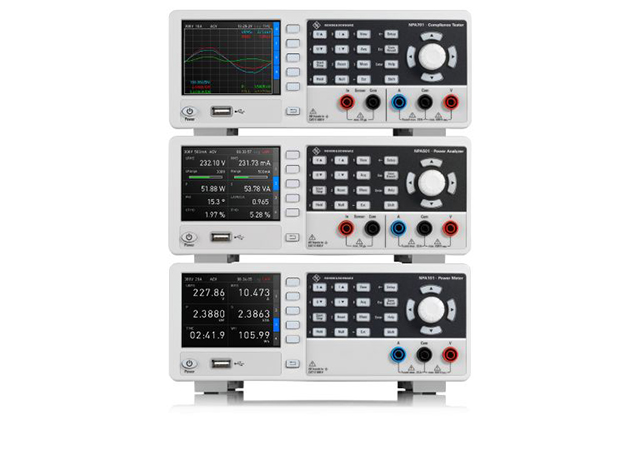
 New projects have been added to the 2019 manufacturing dashboard in Oman
New projects have been added to the 2019 manufacturing dashboard in Oman
Oman’s manufacturing sector has achieved half of its targets set during 2019, which is right up to the standards set out by the Implementation, Support and Follow Up Unit (ISFU), the organisation that oversees the Sultanate’s plans for the Tanfeedh programme for economic expansion.
A statement by the ISFU read: “ISFU reports showed the manufacturing sector achieving 50 per cent out of 52 per cent of the targeted KPIs till July 2019.”
The sector has also provided more than 1500 job offers during that time. The statement added that the sector succeeded in “providing 1579 job opportunities till the second quarter, with investments that reached OMR3.4 billion ($8.84 billion).”
Beyond work on existing projects, the manufacturing sector is also bringing new businesses to Oman.
 |
|
Officials attending the Oman Export Week, last month in Oman |
During this year, the manufacturing sector witnessed the launch of production in Sebacic Oman, the world’s largest bio-refinery which manufactures specialty chemicals from green vegetable (castor) oil as well as bio-nylons and polymers. Sebacic Oman is in Duqm and has been praised by the Special Economic Zone Authority in Duqm for its production and progress.
In addition, five new projects were added to the 2019 manufacturing dashboard. Thus there are 23 projects listed in the manufacturing dashboard in the areas of food security, petrochemical sector, metal and non- metal sector and pharmaceutical sector as well as innovation projects in cooperation with the Industrial Innovation Center in Rusail Industrial Estate and Sohar University. Through the challenges faced by the projects, the Committee has worked to find the appropriate solutions to accelerate obtaining of approvals and permits required from government agencies to accelerate implementation in several projects.
MANUFACTURING EXPORTS
2018 saw the value of manufacturing industry exports increase by 6.2 per cent to reach OR5 billion ($13 billion), compared to 2017, according to a new report. The contribution of manufacturing industry to the GDP at current prices was 9.6 per cent; delivering a value-added of OMR3 billion, data released by the National Centre for Statistics and Information (NCSI), showed.
The official data released by NCSI showed that manufacturing exports contributed 31.4 per cent of the total volume of Oman’s exports in 2018 and 93 per cent of the total volume of imports. The UAE came first in terms of its share of volume of the Omani manufacturing exports by 20.9 per cent (with a value of OR1.1 billion), followed by Qatar by 11.9 per cent, Saudi Arabia by 9.1 per cent, India by 6.3 per cent, and China by 5.6 per cent.
Furthermore, Sohar Port, in terms of value, has facilitated 54 per cent of manufacturing exports increasing from OR2.5 billion (in 2017) to OR3 billion, followed by Al Wajajah border post by 12.5 per cent, Muscat International Airport by 6.5 per cent, Wadi al Jizzi by 5.3 per cent, Salalah Port by 4.9 per cent and the other border crossing posts by 16.5 per cent.
The value of oil manufacturing exports decreased by 10.9 per cent compared to 2017 to reach OR648 million; representing 13 per cent of the total volume of manufacturing exports; as the refined petroleum and coke furnaces products considered among the most important manufacturing exports. Qatar ranked first in terms of the value of manufacturing industry products imported from Oman by OR106.1 million, followed by Pakistan by OR102.5 million, South Africa by OR86 million, Yemen by OR81 million, and Iraq by OR53.6 million; while manufacturing exports to other countries amounted to OR218.8 million.
 |
Wald Al-Qanas International will build a cement block products facility in Sohar Freezone |
According to the NCSI’s information report, non-oil manufacturing exports increased by 19.7 per cent compared to 2017 to reach OR4.4 billion; representing 87 per cent of total manufacturing exports; among which the chemical products, basic metal industries, food products, motor vehicle industry and other transport equipment industries are the most important. The UAE came first in terms of the value of non-oil manufacturing products imported from Oman by OR1 billion, followed by Qatar by OR495 million, Saudi Arabia by OR458 million, India by OR296 million, China by OR281 million, and other countries by OR1.8 billion.
On the other hand, the value of manufacturing industry imports dropped by 1.6 per cent in 2018 comparing to 2017 to reach OR9.3 billion; representing 93 per cent of total imports. Imports from UAE represented 48.1 per cent of total manufacturing imports by a value of OR4.5 billion, followed by imports from China by 6.2 per cent, India by 4.2 per cent, Qatar by 3.7 per cent and Saudi Arabia by 3.4 per cent.
A total of 48 per cent of manufacturing imports that equals to OR4.5 billion has been facilitated through Sohar Port in 2018 compared to OR4.6 billion in 2017; while 18 per cent of manufacturing imports has been facilitated through Al Wajajah border post, 11 per cent through Muscat International Airport (cargo), 5 per cent through Wadi al Jizzi, 3 per cent Salalah Port and 15 per cent through other border crossing posts.
The value of oil manufacturing imports decreased by 5.5 per cent compared to 2017 to reach OR530 million; representing 5.7 per cent of total imports, of which the refined petroleum and coke furnaces products are considered the most important among oil manufacturing industry imports.
At the level of the countries exporting manufacturing industry products to the Sultanate, Qatar came first by the total value of products of OR134.9 million, followed by Iraq by OR83.3 million, UAE by OR79.8 million, India by OR59 million, Bahrain by OR28.4 million, and other countries by OR144.6 million.
Non-oil manufacturing industry imports decreased by 1.3 per cent to OR8.7 billion compared to 2017; to represent 94.3 per cent of total manufacturing imports, among which the basic metal and machinery industries, food products, motor vehicle industry, and computer and electronic products industries are the most important. Non-oil products imported from UAE amounted to OR4.4 billion, followed by products imported from China that stood at OR600 million, India (OR300 million), Saudi Arabia (OR300 million), US (OR300 million), and other counties (OR2.9 billion).
The total volume of Foreign Direct Investment (FDI) in manufacturing at the end of 2018 amounted to OR1.3 billion; representing 9.7 per cent of the total FDI, while the total value of the Omani direct investments in manufacturing amounted to OR75.1 million, in 2017; comprising 4.1 per cent of total Omani direct investment. UAE ranked first in terms of FDI in manufacturing by OR241.2 million; representing 19 per cent of the total volume of FDI in manufacturing as of the end of 2018, followed by India by 8.7 per cent, US by 7.9 per cent, the Netherlands by 7.6 per cent, and Kuwait by 3.9 per cent.
NON-OIL EXPORTS
Oman’s non-oil exports reached $9.7 billion in 2018, which is higher from the $8.2 billion reported in 2017, and have successfully provided employment to over 240,000 people, a senior Ithraa official said.
“Oman’s manufacturers play a crucial role in communities right across the Sultanate, creating new and sustainable jobs, which have helped accelerate Oman’s ambitious economic plans,” said Nasima Al Balushi, director general, Investment & Export at Ithraa.
“We’re living in a digital age, where borders no longer matter. In fact, the word multi-national has long been associated with the world’s largest companies. But today, that label no longer carries the same meaning,” Al Balushi pointed out that. She made the comments while addressing the manufacturers and business leaders, where Oman Export Week (OEW19) began at the Oman Convention & Exhibition Centre (OCEC), last month.


